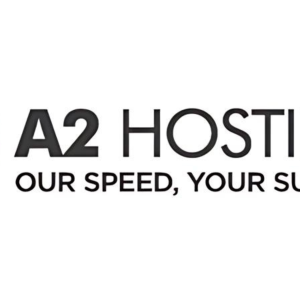
Choosing the right website hosting for developers is essential for building a fast, scalable, and reliable website. With so many hosting services available, it can be overwhelming to pick the one that meets your needs. Developers typically require hosting with strong performance, customizability, and easy integration with coding tools. In this article, we’ll explore the best hosting services for developers, providing key details about features, pricing, and where to buy.
1. Hostinger
Hostinger is one of the most popular hosting services among developers due to its reliable performance and developer-friendly features. It offers an array of tools including support for multiple programming languages, such as PHP, Node.js, and Python. Additionally, Hostinger provides full root access to its VPS plans, making it ideal for advanced users who need complete control over their environment.
Pricing: Hostinger’s plans start at just $1.99/month for shared hosting, but for more advanced VPS hosting, prices begin at $3.99/month.
Where to buy: You can purchase Hostinger plans directly on their website at www.hostinger.com.
- Affordable Plans: Starting at just $2.99/month.
- Fast Performance: Average response time of 143 ms.
- Comprehensive Support: 24/7 live chat assistance.
- Advanced Security: Unlimited free SSL certificates and DDoS protection.
- Versatile Hosting Options: Shared, cloud, VPS, and Minecraft server hosting.
- User-Friendly Website Builder: Drag-and-drop functionality with eCommerce features.
- Global Reach: Over 29 million users in 178 countries.
- 30-Day Money-Back Guarantee: Risk-free trial to experience Hostinger’s services.
2. Bluehost
Bluehost is another great option for developers. It offers a wide range of hosting options, including shared hosting, VPS hosting, and dedicated servers. Bluehost stands out with its integration with WordPress, making it a solid choice for developers working with content management systems. Moreover, it supports frameworks like Laravel and provides SSH access for easier website management.
Pricing: Bluehost’s shared hosting starts at $2.95/month, and VPS hosting plans begin at $18.99/month.
Where to buy: You can purchase Bluehost hosting at www.bluehost.com.
- Leading web hosting provider since 2003
- 99.99% uptime guarantee and high performance
- Easy-to-use dashboard and one-click WordPress installation
- 24/7 customer support via phone, chat, and email
- Free SSL certificates and advanced security features
- Affordable plans for every budget
- Trusted by over 2 million websites worldwide
- Real customer testimonials praising reliability and support
3. Cloudways
Cloudways is a developer-focused hosting platform renowned for its flexibility and high-performance infrastructure. It provides managed hosting on top cloud providers like AWS, Google Cloud, and DigitalOcean, offering unparalleled scalability and speed. Cloudways supports a wide range of web development languages, including PHP, Python, and Ruby, and its staging environments, SSH access, and Git integration make it an ideal choice for developers who prioritize efficiency and customization. With automated backups, robust security features, and 24/7 expert support, Cloudways ensures that developers can focus on building applications without worrying about server management.
Pricing: Cloudways’ plans start at $12/month, with pay-as-you-go pricing tailored to your hosting needs.
Where to buy: You can purchase Cloudways hosting at www.cloudways.com.
- Elevate your online presence with Cloudways Hosting Solutions, offering unparalleled performance and reliability.
- Benefit from lightning-fast loading times and impeccable uptime, ensuring optimal website performance.
- Simplify hosting administration with Cloudways’ user-friendly interface, streamlining your workflow.
- Scale effortlessly to accommodate your evolving needs, whether you’re a budding entrepreneur or a seasoned enterprise.
- Rest easy knowing your data is safeguarded round the clock with Cloudways’ robust security protocols.
- Experience a 40% increase in loading speed compared to traditional hosting solutions.
- Reach audiences worldwide with ease, thanks to Cloudways’ strategically located data centers.
4. A2 Hosting
A2 Hosting is widely recognized for its speed and developer-friendly environment. They offer Turbo Servers that can load websites up to 20x faster than standard hosting plans. A2 Hosting also offers full access to coding environments, such as Node.js, and they support databases like MySQL, MariaDB, and PostgreSQL, making it a versatile choice for developers.
Pricing: A2 Hosting starts at $2.99/month for shared hosting, and their VPS hosting plans start at $5/month.
Where to buy: Purchase A2 Hosting at www.a2hosting.com.
- Lightning-Fast Speed: 20x faster Turbo Servers for optimal performance.
- Reliable Uptime: 99.9% uptime guarantee ensures your site is always online.
- 24/7/365 Support: Guru Crew support available anytime you need assistance.
- Eco-Friendly: Committed to green hosting with carbon offsets.
- Versatile Plans: Offers shared, VPS, and dedicated hosting plans.
- Secure Hosting: Free SSL certificates and robust security features.
- Developer-Friendly: Supports multiple programming languages and free site migrations.
Conclusion
When it comes to best website hosting for developers, Hostinger, Bluehost, Cloudways, and A2 Hosting are all excellent choices, offering different features suited to various development needs. Make sure to assess your specific requirements, such as performance, customization options, and pricing before making a final decision.
Frequently Asked Questions (FAQs) About Website Hosting for Developers
1. What should developers prioritize when selecting a hosting provider?
Developers should focus on performance, scalability, customizability, and compatibility with development tools. Features like full root access, support for multiple programming languages, Git integration, staging environments, and robust security are crucial. Additionally, ease of use, server speed, and reliable uptime play a significant role in delivering a seamless development experience.
2. How do VPS hosting and dedicated servers differ for developers?
VPS Hosting: Virtual Private Server (VPS) hosting divides a physical server into virtual environments, providing dedicated resources at a lower cost. Developers get control over their environment, including root access, but share the physical server with others.
Dedicated Servers: Dedicated servers offer exclusive use of a physical server, providing maximum control, performance, and customizability. This option is ideal for resource-intensive projects but comes at a higher price point.
3. Why is root access important for developers?
Root access allows developers complete administrative control over the hosting environment. This enables them to install custom software, configure server settings, and manage security protocols. Root access is especially beneficial for advanced projects requiring fine-tuned configurations.
4. Can shared hosting meet the needs of developers?
Shared hosting is often not ideal for developers due to its limited resources and lack of customization options. While it can work for basic websites or small-scale projects, it may lack features like root access, staging environments, and robust security, which are essential for development.
5. What makes Cloudways a developer-focused hosting platform?
Cloudways provides managed hosting on cloud platforms like AWS, Google Cloud, and DigitalOcean, offering developers:
- High scalability to meet growing resource demands.
- Staging environments for testing code without affecting live sites.
- Git integration for streamlined version control.
- Support for various programming languages like PHP, Python, and Ruby.
- Advanced server customization options and automated backups.
6. How does hosting support different programming languages?
Hosting providers often pre-configure environments to support popular programming languages like PHP, Node.js, Python, Ruby, and more. Developers should verify that their chosen hosting provider supports the specific language or framework their project requires. Some hosting services also offer flexibility to install custom language runtimes.
7. Is managed hosting better for developers?
Managed hosting simplifies server management by handling tasks like software updates, security patches, and backups. This allows developers to focus on coding rather than server maintenance. However, unmanaged hosting may be better for those who need full control and are comfortable managing servers themselves.
8. What role does server speed play in development?
Server speed impacts both the development process and the end-user experience. Fast-loading servers reduce the time needed to test applications and improve website performance. Hosting providers like A2 Hosting, with their Turbo Servers, offer significant speed advantages for developers.
9. What security features should developers look for in a hosting provider?
Developers should choose hosting providers with robust security features, including:
- SSL/TLS certificates for encrypted data transmission.
- Firewall protection to prevent unauthorized access.
- Malware scanning and removal tools.
- DDoS protection to mitigate attacks.
- Regular backups to safeguard project data.
Security is critical for protecting both the development environment and the live website.
10. How do backups and staging environments benefit developers?
Backups: Regular backups ensure that developers can restore data in case of errors, crashes, or cyberattacks. This is essential for safeguarding progress and minimizing downtime.
Staging Environments: Staging allows developers to test changes in a sandbox environment before pushing them live. This reduces the risk of introducing errors to the live site and ensures a smooth deployment process.
11. How can Git integration improve development workflows?
Git integration streamlines version control, making it easier for developers to track changes, collaborate with teams, and roll back to previous versions when needed. Hosting platforms with built-in Git support, like Cloudways, simplify deployment processes and boost productivity.
12. What is the significance of scalability in hosting?
Scalability ensures that a hosting service can adapt to a project’s growing resource needs, such as increased traffic or expanded functionalities. Cloud hosting services like Cloudways excel in scalability by allowing developers to upgrade resources on demand without migrating servers.
13. Do hosting providers offer support for databases beyond MySQL?
Yes, many hosting providers support multiple database types, including MariaDB, PostgreSQL, and NoSQL options like MongoDB. Developers should confirm compatibility with their preferred database to ensure seamless integration.
14. What is SSH access, and why is it useful for developers?
Secure Shell (SSH) access provides developers with a secure way to remotely manage their servers. It enables tasks like file transfers, software installations, and server configuration through command-line tools, offering speed and precision.
15. Can developers use hosting services for mobile app backends?
Yes, hosting services that support API creation, database management, and scalable infrastructure can be used for mobile app backends. Cloud hosting platforms like AWS (available via Cloudways) are particularly suited for such purposes.
16. How do hosting services ensure uptime reliability?
Most hosting providers guarantee uptime reliability through redundant data centers, failover systems, and proactive monitoring. Developers should look for providers offering at least 99.9% uptime guarantees.
17. What factors influence the cost of hosting for developers?
The cost of hosting depends on factors such as:
- Hosting type (shared, VPS, dedicated, or cloud).
- Resource allocations (CPU, RAM, storage).
- Features like root access, scalability, and backups.
- Managed vs. unmanaged services.
Developers should assess their project needs to choose a cost-effective plan.
18. What is the importance of 24/7 support for developers?
24/7 support ensures that developers can resolve server-related issues promptly, minimizing downtime. Providers like Hostinger and Cloudways offer expert support to help troubleshoot technical problems and optimize hosting environments.
19. Can hosting services handle continuous integration/continuous deployment (CI/CD)?
Yes, many hosting platforms support CI/CD workflows. They provide tools and integrations for automated testing, deployment, and scaling, streamlining development cycles and ensuring consistent application performance.
20. How do hosting providers handle large-scale traffic spikes?
Hosting providers use load balancing, autoscaling, and content delivery networks (CDNs) to manage traffic spikes effectively. Platforms like Cloudways, which leverage cloud infrastructure, are especially well-suited for handling high-traffic scenarios.










